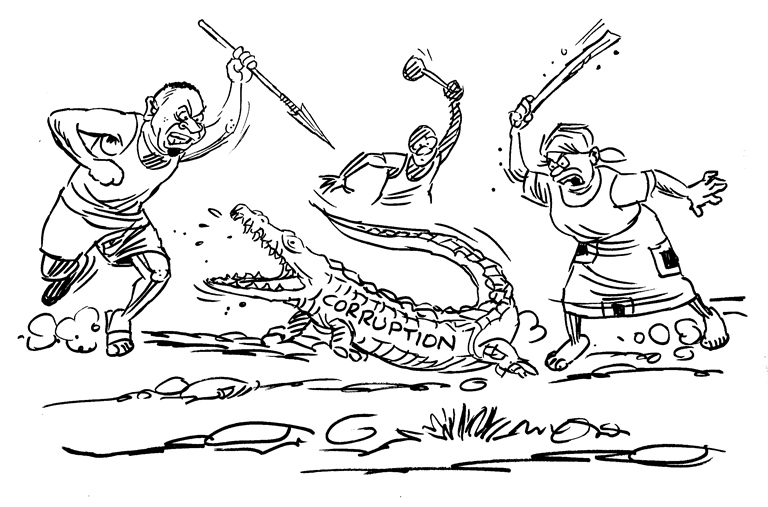Do perceptions really matter?
Last week we focused on the Corruption Perceptions report which was to be released by Transparency International (TI) on Tuesday, January 31 2023. Indeed, the report was launched on the stated date and as anticipated the results seem to be familiar in a way, because they point to corruption problems that are not new at all. Mostly the report acknowledges the state of an ongoing stagnation at the global level as most countries have continued to fall within the average score of 43 (out of 100) for over a decade.
Specific to the sub-Sahara Africa, the report states that 44 of 49 sub-Saharan countries have scored below 50. In short, the results can be interpreted as saying that while corruption has remained a global problem, it is perceived as worse in sub-Saharan Africa. Interestingly, countries such as Seychelles, Botswana and Cabo Verde outshine the rest of their counterparts on account of having instituted sound democratic systems with improved policy and legislative frameworks, they have been pursuing measures to improve transparency and accountability in line with their Open Government Partnership commitments and that they have also been promoting whistle-blowers’ protection.
Based on the CPI results, Malawi’s public sector has for a long time been perceived corrupt despite the fact that Malawi has pursued similar anti-corruption mechanisms since the advent of multi-party democracy. For instance, it is not long ago that the Malawi Parliament passed into law a Bill that sought to remove the requirement for the Anti-Corruption Bureau to seek consent from the office of Director of Public Prosecutions to prosecute corruption cases. It is also not long ago that the Court’s Act was amended to create a special division to preside over financial and economic criminal cases. We have also witnessed in recent times efforts to improve access to information, open government and the protection of whistle-blowers through lobbying by civil society and the government’s anti-corruption reforms.
One may ask, therefore, why despite all these efforts Malawi remains stagnated as a country whose public sector is perceived as very corrupt. Obviously, this question will have several divergent answers reflecting one’s orientation, be it professional, political or otherwise. As we mused in our last entry, a perception does not necessarily reflect the truth. A perception is built around how we interpret various stimuli, things we hear, see or feel etc. With perceptions one can either be judged fairly or unfairly.
In our last entry, we mentioned that the Corruption Perception Index is based on several parameters such as bribery, diversion of public funds, use of public office for private gain, nepotism in the civil service, failure to effectively prosecute corrupt officials and red tape. People’s perceptions about all these vices in the public sector are based on what they experience in transacting with public offices or officials. Examples are more than sufficient whereupon negative corruption perceptions accrue about our public sector. Unfortunately, these tend to gravely erode all the remarkable anti-corruption mechanisms that the government has put in place.
Therefore, while it may be acknowledged that as a country we have put in place colorful anti-corruption mechanisms we should be mindful of the perceptions that are created from stories or experiences of things such as bribes, the delays or failure to effectively prosecute corruption cases, the lack of diligence in management of recovered assets, the traditional red-tape associated with all public services and the blatant tendencies to obstruct disclosure of information that serves to secure public trust in government. Perceptions matter. The people that want to come and invest in Malawi will obviously make their risk assessment based on what others have said about the conduct of our public sector institutions. Even our development partners, the donors, will likely pay some attention to what they hear about Malawi’s public sector by those that transact with it, be it companies or ordinary citizens. Our corruption fight must, therefore, be keen on eliminating any tendencies in the public sector and beyond, which fairly or unfairly can potentially expose Malawi as a corrupt country.




